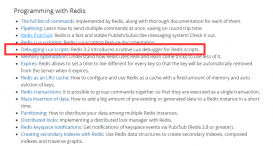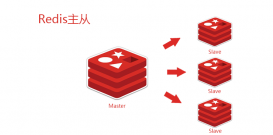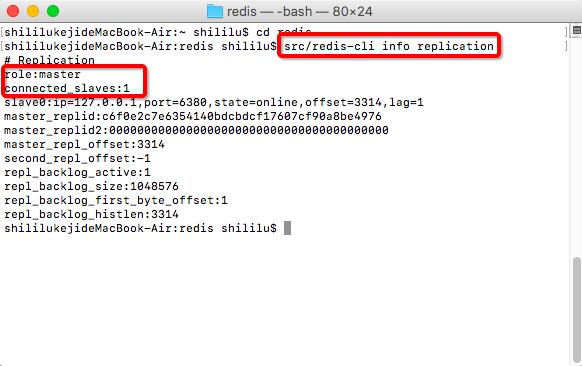抢红包的需求分析
抢红包的场景有点像秒杀,但是要比秒杀简单点。
因为秒杀通常要和库存相关。而抢红包则可以允许有些红包没有被抢到,因为发红包的人不会有损失,没抢完的钱再退回给发红包的人即可。
另外像小米这样的抢购也要比淘宝的要简单,也是因为像小米这样是一个公司的,如果有少量没有抢到,则下次再抢,人工修复下数据是很简单的事。而像淘宝这么多商品,要是每一个都存在着修复数据的风险,那如果出故障了则很麻烦。
基于redis的抢红包方案
下面介绍一种基于Redis的抢红包方案。
把原始的红包称为大红包,拆分后的红包称为小红包。
1.小红包预先生成,插到数据库里,红包对应的用户ID是null。
2.每个大红包对应两个redis队列,一个是未消费红包队列,另一个是已消费红包队列。开始时,把未抢的小红包全放到未消费红包队列里。
未消费红包队列里是json字符串,如{userId:'789', money:'300'}。
3.在redis中用一个map来过滤已抢到红包的用户。
4.抢红包时,先判断用户是否抢过红包,如果没有,则从未消费红包队列中取出一个小红包,再push到另一个已消费队列中,最后把用户ID放入去重的map中。
5.用一个单线程批量把已消费队列里的红包取出来,再批量update红包的用户ID到数据库里。
上面的流程是很清楚的,但是在第4步时,如果是用户快速点了两次,或者开了两个浏览器来抢红包,会不会有可能用户抢到了两个红包?
为了解决这个问题,采用了lua脚本方式,让第4步整个过程是原子性地执行。
下面是在redis上执行的Lua脚本:
|
1
2
3
4
5
6
7
8
9
10
11
12
13
14
15
16
17
18
19
20
21
22
23
|
-- 函数:尝试获得红包,如果成功,则返回json字符串,如果不成功,则返回空 -- 参数:红包队列名, 已消费的队列名,去重的Map名,用户ID -- 返回值:nil 或者 json字符串,包含用户ID:userId,红包ID:id,红包金额:money -- 如果用户已抢过红包,则返回nil if rediscall('hexists', KEYS[3], KEYS[4]) ~= 0 then return nil else -- 先取出一个小红包 local hongBao = rediscall('rpop', KEYS[1]); if hongBao then local x = cjsondecode(hongBao); -- 加入用户ID信息 x['userId'] = KEYS[4]; local re = cjsonencode(x); -- 把用户ID放到去重的set里 rediscall('hset', KEYS[3], KEYS[4], KEYS[4]); -- 把红包放到已消费队列里 rediscall('lpush', KEYS[2], re); return re; end end return nil |
下面是测试代码:
|
1
2
3
4
5
6
7
8
9
10
11
12
13
14
15
16
17
18
19
20
21
22
23
24
25
26
27
28
29
30
31
32
33
34
35
36
37
38
39
40
41
42
43
44
45
46
47
48
49
50
51
52
53
54
55
56
57
58
59
60
61
62
63
64
65
66
67
68
69
70
71
72
73
74
75
76
77
78
79
80
81
82
83
84
85
86
87
88
89
90
91
92
93
94
95
96
97
98
99
100
101
|
public class TestEval { static String host = "localhost"; static int honBaoCount = 1_0_0000; static int threadCount = 20; static String hongBaoList = "hongBaoList"; static String hongBaoConsumedList = "hongBaoConsumedList"; static String hongBaoConsumedMap = "hongBaoConsumedMap"; static Random random = new Random(); // -- 函数:尝试获得红包,如果成功,则返回json字符串,如果不成功,则返回空 // -- 参数:红包队列名, 已消费的队列名,去重的Map名,用户ID // -- 返回值:nil 或者 json字符串,包含用户ID:userId,红包ID:id,红包金额:money static String tryGetHongBaoScript = // "local bConsumed = rediscall('hexists', KEYS[3], KEYS[4]);\n" // + "print('bConsumed:' ,bConsumed);\n" "if rediscall('hexists', KEYS[3], KEYS[4]) ~= 0 then\n" + "return nil\n" + "else\n" + "local hongBao = rediscall('rpop', KEYS[1]);\n"// + "print('hongBao:', hongBao);\n" + "if hongBao then\n" + "local x = cjsondecode(hongBao);\n" + "x['userId'] = KEYS[4];\n" + "local re = cjsonencode(x);\n" + "rediscall('hset', KEYS[3], KEYS[4], KEYS[4]);\n" + "rediscall('lpush', KEYS[2], re);\n" + "return re;\n" + "end\n" + "end\n" + "return nil"; static StopWatch watch = new StopWatch(); public static void main(String[] args) throws InterruptedException { // testEval(); generateTestData(); testTryGetHongBao(); } static public void generateTestData() throws InterruptedException { Jedis jedis = new Jedis(host); jedisflushAll(); final CountDownLatch latch = new CountDownLatch(threadCount); for(int i = 0; i < threadCount; ++i) { final int temp = i; Thread thread = new Thread() { public void run() { Jedis jedis = new Jedis(host); int per = honBaoCount/threadCount; JSONObject object = new JSONObject(); for(int j = temp * per; j < (temp+1) * per; j++) { objectput("id", j); objectput("money", j); jedislpush(hongBaoList, objecttoJSONString()); } latchcountDown(); } }; threadstart(); } latchawait(); } static public void testTryGetHongBao() throws InterruptedException { final CountDownLatch latch = new CountDownLatch(threadCount); Systemerrprintln("start:" + SystemcurrentTimeMillis()/1000); watchstart(); for(int i = 0; i < threadCount; ++i) { final int temp = i; Thread thread = new Thread() { public void run() { Jedis jedis = new Jedis(host); String sha = jedisscriptLoad(tryGetHongBaoScript); int j = honBaoCount/threadCount * temp; while(true) { Object object = jediseval(tryGetHongBaoScript, 4, hongBaoList, hongBaoConsumedList, hongBaoConsumedMap, "" + j); j++; if (object != null) { // Systemoutprintln("get hongBao:" + object); }else { //已经取完了 if(jedisllen(hongBaoList) == 0) break; } } latchcountDown(); } }; threadstart(); } latchawait(); watchstop(); Systemerrprintln("time:" + watchgetTotalTimeSeconds()); Systemerrprintln("speed:" + honBaoCount/watchgetTotalTimeSeconds()); Systemerrprintln("end:" + SystemcurrentTimeMillis()/1000); } } |
测试结果20个线程,每秒可以抢2.5万个,足以应付绝大部分的抢红包场景。
如果是真的应付不了,拆分到几个redis集群里,或者改为批量抢红包,也足够应付。
总结:
redis的抢红包方案,虽然在极端情况下(即redis挂掉)会丢失一秒的数据,但是却是一个扩展性很强,足以应付高并发的抢红包方案。
以上就是本文的全部内容,希望对大家的学习有所帮助,也希望大家多多支持服务器之家。

















